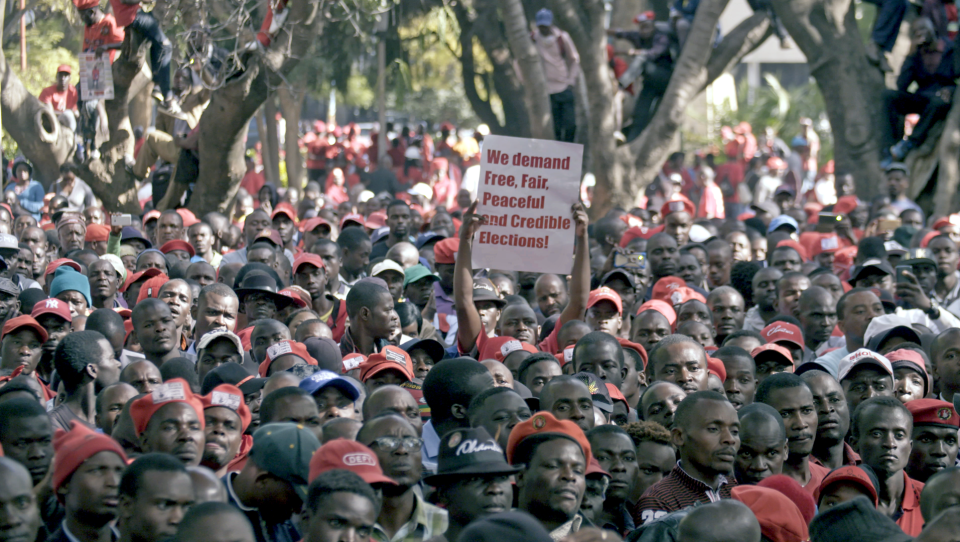In POV’s documentary, President, filmmaker Camilla Nielsson takes viewers into the volatile, gritty 2018 Zimbabwean election that pitted the entrenched old guard against the charismatic opposition leader Nelson Chamisa. The film, which can be seen here, won the 2021 Sundance Award for World Cinema documentary, Excellence Verité Filmmaking, and was shortlisted for an Academy Award for Feature Documentary. POV is America's longest running documentary series.
The film follows both candidates, as Chamisa draws huge crowds across the country with a message of change and empowerment, aiming to wrest power from President Emmerson Mnangagwa. As the country suffers under crushing inflation and unemployment, limits on freedom of speech and suppression of opponents, Mnangagwa makes promises of peaceful, credible elections overseen by election observers from about 40 countries.
“The previous president, Robert Mugabe, who had rigged elections before, hadn’t allowed observers for about two decades,” said Nielsson. “So, there was a lot of hope that they would make a difference.”
Nielsson’s earlier film Democrats, which charted Zimbabwe’s contentious process of drafting a new constitution in 2009, was banned in the country. The relationships she formed then created the network that enabled her to make President a decade later.
“The warmth and trust were still there years later, which was so humbling,” she said. “As we filmed, we faced a lot of security risks. We couldn’t have done it without the help of a huge network of people who trust each other.”
Her interest in anthropology and colonial history drew her to the story, she said.
“My belief is that the mess that the Europeans left on the African continent is still pretty much the main problem there. We’ve never dealt with it. I felt that documenting positive progress, or what we thought would be positive progress, would be of value in terms of creating both a documentary and a historical record,” she said.
“I’m a firm believer that Zimbabweans should tell their own stories,” added Nielsson. “But the repression from the current government against dissenting voices makes it too risky at the moment. There’s a reason why in the film’s credits all Zimbabwean crew members are listed as anonymous.”
President is not only an African tale.
“We were still in the editing room on January 6 when President Trump’s supporters stormed the U.S. Capitol,” Nielsson recalled. “Trump was making accusations of ballot rigging, problems with the electoral commission and fraud. Suddenly, the story of the fight for free and fair elections in Zimbabwe was mirrored in the U.S. What could have been an African niche story of being witness to a great injustice—a stolen election—suddenly resonated with a larger audience.”
She hopes the film is “food for thought” for viewers. “We don’t always appreciate the value of independent institutions and the separation of powers,” she said. “We need to cultivate our democracies and nurture them and be active in more ways than just putting our mark on a ballot.”
With another Zimbabwean presidential election in 2023, she feels hope, tempered by the knowledge that some voters are apathetic and others face barriers to voter registration.
“Chamisa is more popular than ever as an opposition leader, and the opposition still maintains resilience and hope. I think we need to join that and be hopeful with them. There is a surge in young, newly registered voters, which also gives me hope, because there is a limit on how much you can rig an election.”



